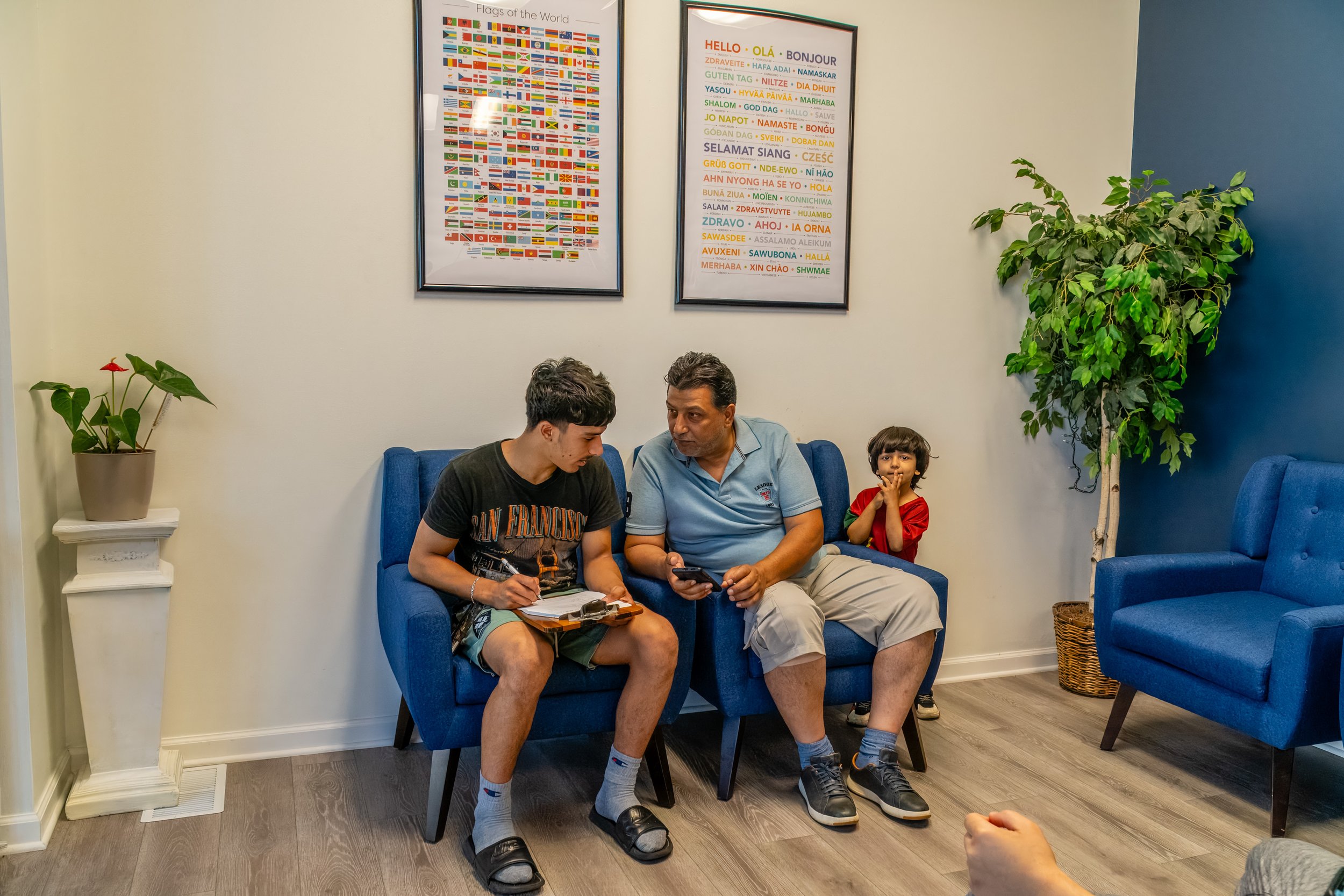
Areas of Practice
What We Do
Each immigration-related matter is assessed on a case-by-case basis. The list below is not exhaustive of all services offered by the office.
-
Citizenship & Naturalization
In most cases, a person who wants to naturalize must first be a permanent resident. By becoming a U.S. citizen, you gain many rights that permanent residents or others do not have, including the right to vote. To be eligible for naturalization, you must first meet certain requirements set by U.S. law.
-
Permanent Residence
A Permanent Resident card, or “green card,” is a plastic card with the individual's biographic information, photo, fingerprint, and expiration date issued by U.S. Citizenship and Immigration Services. It authorizes the green card holder the right to live and work in the United States indefinitely.
-
Employment Authorization
An Employment Authorization Document (EAD) is sometimes referred to as a work permit — or, more officially, Form I-766. With this document, you can prove that you are eligible to work legally in the United States.
-
Family Based Petition
Family Based Petitions allow for individuals in the United States to sponsor their family to immigrate to the United States. The Immigration and Nationality Act allows for the immigration of foreigners to the United States based on a relationship to a U.S. citizen or legal permanent resident.
-
U-Visa
The U-visa is a nonimmigrant visa which is set aside for victims of crimes and their immediate family members who have suffered substantial mental or physical abuse while in the U.S. and who are willing to assist law enforcement and government officials in the investigation or prosecution of the criminal activity.
-
T-Visa (Trafficking)
Immigrant populations are especially vulnerable to human trafficking. The T-Visa empowers immigrant survivors to escape their traffickers and achieve self-sufficiency. Persons who were victims of sex or labor trafficking either by being trafficked to the or within the United States and who complied with any reasonable request for assistance from law enforcement in the investigation or prosecution of the trafficking may be eligible for a T-Visa.
Applicants may be able to benefit some family members, including spouses, children, parents, and siblings.
-
VAWA
An individual who has been subjected to battery or extreme cruelty (such as severe emotional abuse) by their U.S. citizen or lawful permanent resident spouse, parent, or child, may qualify to file a self-petition under the Violence Against Women Act (VAWA). Such a petition can be filed without the abuser's knowledge or permission. VAWA provides access to a work permit, protection from deportation, and in many cases, the opportunity to apply for lawful permanent resident status. The provisions of VAWA apply equally to males and females.
-
Deferred Action for Child Arrivals (DACA)
DACA is a form of temporary protection from deportation and provides employment authorization for two years for qualifying individuals. Applicants must have entered the United States on or before June 15, 2007, and before reaching age 16. They must also be in school or have a high school diploma or general education development (GED) certificate.
-
Refugee
A refugee is a person who has fled their country because of past persecution or a fear of future persecution because of race, religion, nationality, political opinion, or membership in a particular social group. Refugees are resettled within the United States with the help of local refugee resettlement agencies.
Refugees are required to file an application to obtain lawful permanent resident status one year after having entered the United States.
-
Humanitarian Relief
USCIS provides a number of humanitarian programs and protection to assist individuals in need of shelter or aid from disasters, oppression, emergency medical issues and other urgent circumstances.
-
Temporary Protected Status (TPS)
Temporary protected status (TPS) is a program that allows migrants whose home countries are considered unsafe the right to live and work in the United States for a temporary, but extendable, period of time.
-
Parolee
USCIS uses its discretion to authorize parole. Parole allows an individual, who may be inadmissible or otherwise ineligible for admission into the United States, to be paroled into the United States for a temporary period.
-
Asylum
To qualify for asylum, a foreign national must prove that they are unwilling to return to the home country because of past persecution or a fear that they will be persecuted upon return to their home country. The past or feared future harm must be on the basis of race, religion, nationality, membership in a particular social group, or political opinion. It is important for asylum-seekers to file their application within the one-year period after the person's last date of entry into the United States.
-
Nonimmigrant Visas
Nonimmigrant visas are for foreign nationals wishing to enter the United States on a temporary basis - for tourism, medical treatment, business, temporary work, study, or other similar reasons.
-
SIJS
Special Immigrant Juvenile Status is an option for children in the United States who cannot be reunited with one or both parents because of abuse, abandonment, or neglect. These findings are made by a U.S. state court who must find that it is not in the best interest of the child to be returned to their country of nationality. It is important to note that the age of majority in Nebraska is 19 years old and in most states it is 18 years. Well in advance of reaching the age of majority, children and their guardians should seek legal advice on whether this form of relief may apply.
-
More
As stated above each immigration-related matter is assessed on a case-by-case basis. The list is not exhaustive of all services offered by the office.
